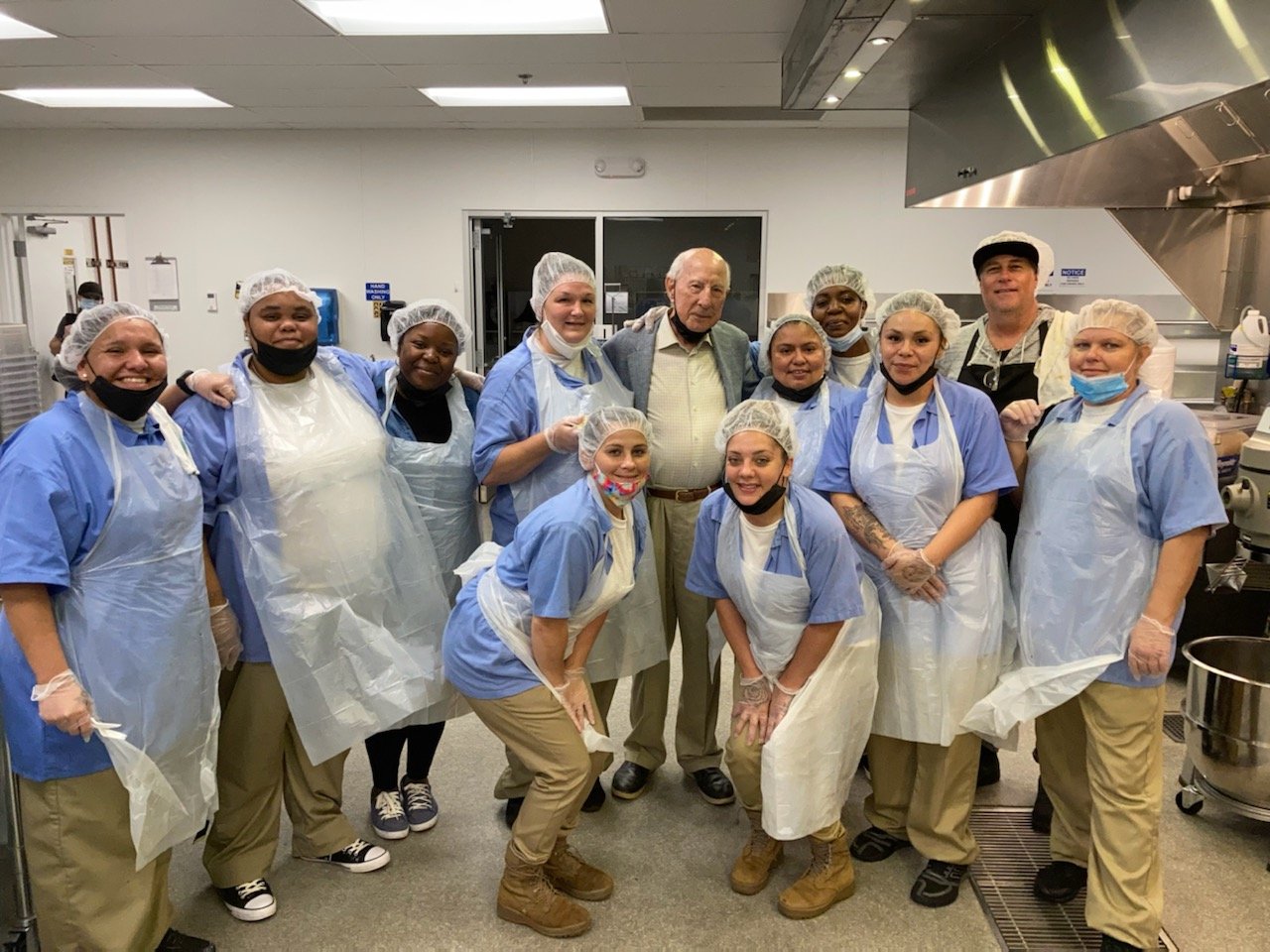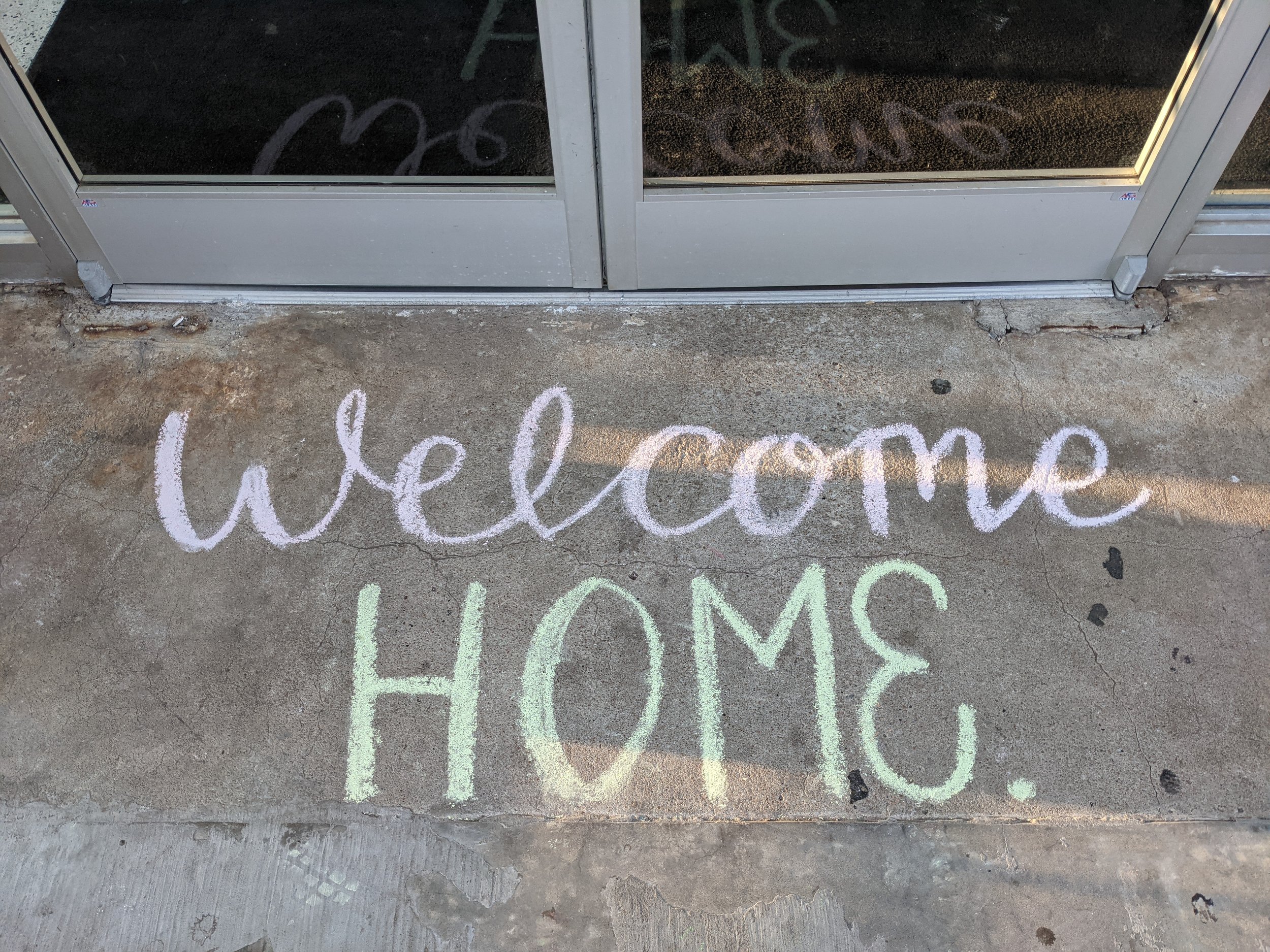
TEEM Reentry Services
Oklahoma is among the top incarcerators in the nation and incarcerates more women and people of color per capita than almost any other state in the nation. In response, the Oklahoma Department of Corrections, the Oklahoma Department of Career and Technology Education, and TEEM have developed a strategic partnership in order to provide a support system that equips and empowers Oklahomans returning to society to successfully overcome a troubled past, reenter the workforce and avoid additional involvement with the criminal justice system.
Since its inception, Reentry Services has served thousands of Oklahomans who are seeking to overcome a troubled past, rebuild their lives and attain their goals for self-sufficiency. Being involved in the justice system often creates barriers including challenges with employment opportunities, housing options, and healthy relationships. By assisting participants as they rebuild their lives and providing resources necessary to achieve their goals, TEEM services offer a lifeline to those reentering society.
Individuals who have been impacted by incarceration are parents, family members, fellow Oklahomans and future employees who can make positive contributions to the community regardless of their past. TEEM programming assists those impacted by incarceration as they pursue meaningful employment, pro-social lifestyles and self-sufficiency.
Empowering our community
Through Reentry Services, participants who are currently incarcerated and within nine months of release are transported to the TEEM building to begin a Reentry program known as “Empower,” an intensive course that provides transition planning, personal development, and work readiness training. Curriculum for the Empower course includes financial literacy, computer skills, healthy relationships, addiction and substance use education, resume building, mock interviewing, and more.
In addition to Empower, participants have the option to go through a rigorous employment certification and training program in second-chance friendly industries such as culinary arts or construction trades in order to prepare for success as they reenter society.
Education in Action
In partnership with the Regional Food Bank of Oklahoma, the Oklahoma Department of Career and Technology, and the Oklahoma Department of Corrections, TEEM provides pre-release culinary arts education and training for participants who are nearing their release.
Participation in the eight-week course is voluntary, and classes provide the training and education necessary for participants to embark on a sustainable career path post-release.
Classes take place at the Regional Food Bank of Oklahoma alongside a certified instructor. During their culinary training, the class will prepare over 10,000 meals per month to assist food insecure Oklahomans.
Meaningful employment leads to new opportunities and renewed hope.
TEEM Reentry participant Cody stands with her case manager after earning her CDL certification from the Department of Corrections.
Common Obstacles to Reentry:
-
Fines and Fees
Those who have been impacted by incarceration frequently owe thousands of dollars in fees and fines. For some it might be $5,000, and for others it might be $30,000 or more. Failure to pay these costs can result in additional involvement with the criminal legal system, which then results in additional fees.
-
Employment
Securing transportation, housing, and paying back fees and fines requires income. Stable, meaningful employment is a major indicator of success post-release, but many employers will not hire those with a criminal background. Employment is often the biggest obstacle for those impacted by incarceration.
-
Housing
Upon release, housing is the most immediate concern because options are limited. Without a steady income plus the additional challenge of the “scarlet letter” of a felony conviction, finding safe, stable housing is a significant obstacle. Lack of reliable housing results in significant barriers to reentry.
-
Transportation
It takes resources to obtain bus passes, gasoline, or maintain a vehicle. Without stable income, transportation becomes a major obstacle that can prevent employment and limit housing opportunities. Reliable transportation is needed to obtain a successful outcome.
-
Driver’s License and ID
Obtaining employment requires some form of identification, but those who are reentering do not necessarily have a current driver’s license. Without transportation, income, or housing for even a mailing address, renewing a driver’s license or obtaining a copy of a birth certificate can be a major challenge.
-
Financial Obligations
Those who are getting back on their feet after a period of incarceration face other financial obligations including payment for supervision, food, child support, substance use services, phone bills, medical care, or court-ordered classes. Failure to pay can create additional legal issues.




